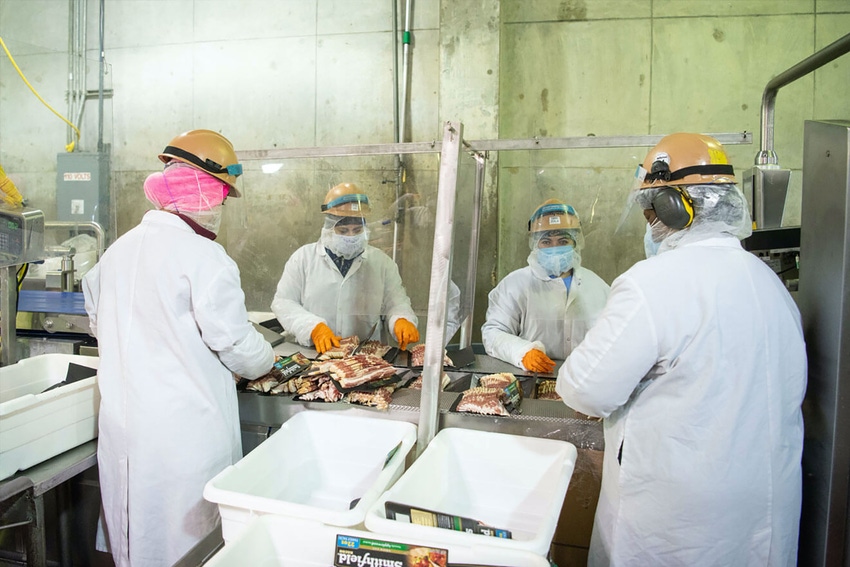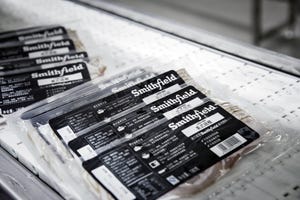Legislative Watch: Pork plants at 95%; clarity on dicamba use; where's the beef study? deny blanket RSF waivers; ease carbon market participation.

USDA announced this week that the U.S. meatpacking facilities are operating at more than 95% of their average capacity compared to this time last year. Beef plants are at 98%, pork facilities at 95% and poultry facilities are at 98% compared to last year.
Secretary of Agriculture Sonny Perdue says, "I want to thank the patriotic and heroic meatpacking facility workers, the companies and the local authorities for quickly getting their operations back up and running, and for providing a great meat selection once again to the millions of Americans who depend on them for food."
EPA provides some clarity on dicamba use
The Environmental Protection Agency announced it will allow producers and commercial applicators to use dicamba that was in their possession on June 3, but it must be used by July 31.
This announcement by the EPA comes after it cancelled the registration of three dicamba products: Engenia (BASF), FeXapan (Corteva) and XtendiMax (Bayer). This is the result of the U.S. Ninth Circuit Court of Appeals ruling that the EPA in 2018 failed to acknowledge or significantly understated risks posed by these three products.
Various press reports indicate that the EPA plans to allow agricultural retailers to distribute dicamba to producers who prepaid for the product as long as the payment was made by June 3 and the product was in the possession of the retailer. Groups are waiting for official clarification since the issue of prepayment was not addressed in EPA's original announcement.
EPA Administrator Andrew Wheeler says, "At the height of the growing season, the court's decision has threatened the livelihood of our nation's farmers and the global food supply. Today's cancellation and existing stocks order is consistent with EPA's standard practice following registration invalidation, and is designed to advance compliance, ensure regulatory certainty, and to prevent the misuse of existing stocks."
Where's the USDA beef study?
Sen. Chuck Grassley (R-IA) is asking USDA's Packers and Stockyards Division to publicly release the findings from its investigation into beef pricing margins following the fire at Tyson's beef plant in Holcomb, Kan.
In a letter to Secretary of Agriculture Perdue, Grassley reminds him that on Aug. 28, 2019, Perdue ordered Packers and Stockyards to launch the investigation. Grassley says that if the report is not issued by Aug. 9, he will ask the General Accountability Office to investigate the reporting processes of the Packers and Stockyards Division to determine if additional authority or resources are needed to conduct oversight of processing facilities.
Deny RFS waiver requests
A bipartisan group of U.S. Representatives is asking the EPA to not reduce volumes in the Renewable Fuels Standard by denying blanket requests for waivers.
The Representatives say in a letter to President Trump, "The effects of COVID-19, on top of the damage caused by abuse of the small refinery exemption waivers, have caused more than 150 biofuel plants to either completely or partially idle production. This means that over 50% of U.S. ethanol production capacity has ceased operations, resulting in economic uncertainty for our rural economies and the loss of a critical market for corn farmers. At an already turbulent time for ethanol and biodiesel producers, we must take action to support — not undermine — the industry and our farmers."
The letter was organized by Reps. Abby Finkenauer (D-IA), Dave Loebsack (D-IA), Roger Marshall (R-KS), Collin Peterson (D-MN) and Rodney Davis (R-IL). A similar letter was sent last month by a bipartisan group of Senators.
Easing ag carbon market participation
Bipartisan legislation introduced by Sens. Mike Braun (R-IN), Debbie Stabenow (D-MI), Lindsey Graham (R-SC) and Sheldon Whitehouse (D-RI) would make it easier for farmers and landowners to participate in carbon markets by breaking down barriers.
The "Growing Climate Solutions Act" would establish a USDA certification program for third-parties to become "USDA certified" as technical service providers. This would help solve technical entry barriers by increasing transparency which would include access to reliable information about markets and access to qualified technical assistance providers and credit protocol verifiers.
The bill establishes an advisory council to update USDA on developments in carbon markets. A USDA website would be created to serve as a resource for farmers and foresters interested in generating carbon credits.
Those supporting the legislation include the American Farm Bureau Federation, National Farmers Union, National Corn Growers Association, Environmental Defense Fund, National Wildlife Federation and McDonalds.
Source: P. Scott Shearer, who is solely responsible for the information provided, and wholly owns the information. Informa Business Media and all its subsidiaries are not responsible for any of the content contained in this information asset.
About the Author(s)
You May Also Like


